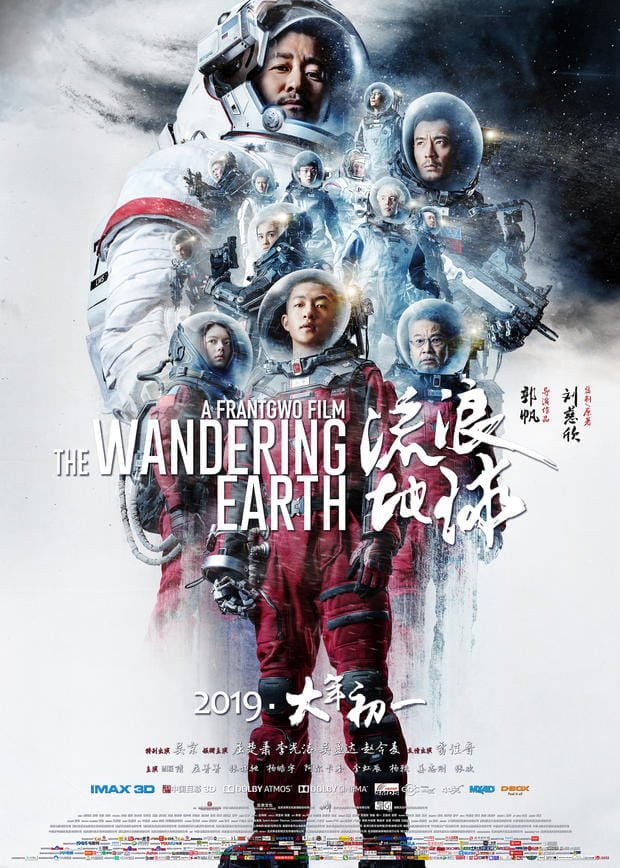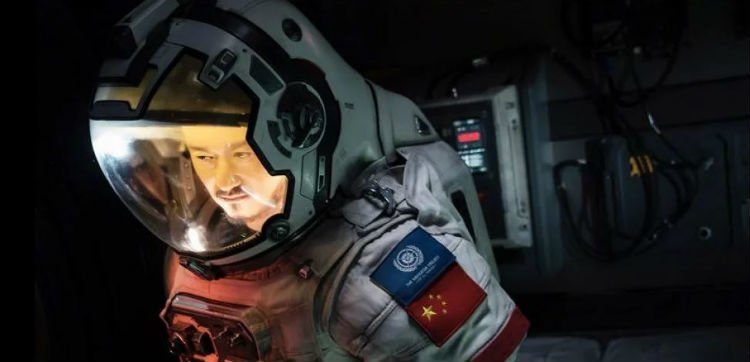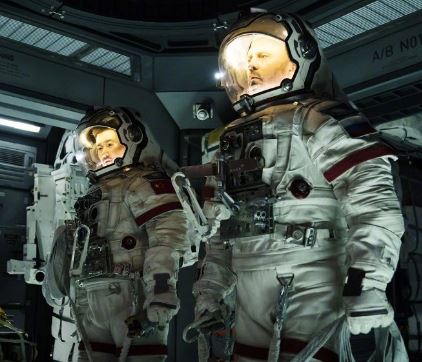
Just when we thought we’d figured out how to address global warming, it turns out that the sun has gone rogue and in less than a century it’s going to destroy Earth and eventually expand to the size of our solar system. We can’t build enough space stations to save mankind and we can’t colonize another planet since they’re all going to be destroyed too. But what if we built thousands of massive rocket thrusters at key spots on the planet and shot the entire planet out of the solar system and onward to the Sol-like sun a 2,500 year journey away?
That’s the fantastic and fascinating premise of the new Chinese made sci-fi blockbuster ‘The Wandering Earth’ and it’s an idea so crazy that might just work. Thousands of thrusters and massive underground cities to ensure billions of people around the world can survive and breed, generation after generation, until the planet can be neatly repositioned in the new system. Meanwhile, everything is utter chaos and when the rotation of the Earth is stopped so that the thrusters can push our planet in the right direction, it’s a smart thing to be 500m underground in one of the cities.
Great sci-fi stories are about people, not just technology, however, and ‘The Wandering Earth’ centers on three generations of a Chinese family: grandfather, father Liu Peiqiang (Wu Jing), and son Liu Qi (Qu Chuxiao). The film opens as the United Earth Government announces its plans to save Earth and mankind: To shoot out of the solar system. Leading the journey will be a massive space station that will ensure safe travels. It’s Liu Peiqiang who’s volunteered to be part of the space station staff, a job that will keep him in space for almost twenty years. Meanwhile, his 7 year old son Liu Qi doesn’t really understand what’s going on. Zoom forward 17 years and things have gotten rough, but the Earth is indeed on its journey out of our system; it’s poised to slingshot past Jupiter and use the planet’s gravitational pull to speed up the journey.

By this point, Liu Qi has become a brilliant but highly cynical tech who dabbles in creating strange technologies and yearns for the father he’s never known. His mother, in the way of all drama, passed away many years earlier, so he’s been raised by his grandfather. Along the way an orphan girl Han Duo (Zhao Jinmai) has been adopted by the family, Qi’s adopted sister. She’s a teenager and her ceaseless gum chewing and occasional whining are one of the few humanizing elements of this male-heavy cast.
So they’re flying past Jupiter and it’s all looking good for the gravity slingshot. Until it isn’t and everyone realizes with some alarm that the Earth has been almost 10-degrees off course and is being pulled into Jupiter’s massive gravity not flung past it. Worse, it’s knocked almost all of the planetary thrusters offline! That’s the main plot element around which everything else revolves and it’s up to Liu Qi, Han Dao, tough military captain Wang Lei (Li Guangjie), scientist Li Yiyi (Zhang Yichi) and half-Australian, half-Chinese sidekick Tim (Mike Sui) to get one of the big equatorial thrusters online before it’s too late.
There’s a lot to like about this fast-moving adventure sci-fi epic, from the sheer audacity of the core storyline to the gorgeous sets and external shots, to the gritty realism of the underground cities. Like all good science fiction, it asks the viewer to ponder some fundamental questions about who should be saved, what cost we’re willing to pay to survive, and what plans we might create if we’re really heading to heck in a handbasket, however big or small. The visual effects are stunning and rival the best of Hollywood’s sci-fi epics. That’s no surprise when visual effects teams like Base FX, Pixomondo, Bottleship FX, Weta, and Macrograph were involved. There’s also a 3D IMAX version that I managed to catch (it was only in US theaters for two days before being bumped off the screens by the Lego movie) and it was lush and entirely immersive on the huge screen. The deep frozen and half-destroyed skylines of the Chinese cities were terrific.
 But ‘The Wandering Earth’ isn’t great science fiction. Modern film audiences are sophisticated enough to find a story that ignores the most basic of physics jarring. A nerdy scientist who could explain how the Earth still had an atmosphere once it stopped spinning or how we could build cities big enough to house over three billion humans that are 500m underground would have solved the narrative problem. Also, the temperature on the Earth’s surface should be absolute zero if we’re racing through deep space too; how is it vehicles can still function on that surface? And the final solution (no spoilers here!) really doesn’t hold water and would not have a happy ending.
But ‘The Wandering Earth’ isn’t great science fiction. Modern film audiences are sophisticated enough to find a story that ignores the most basic of physics jarring. A nerdy scientist who could explain how the Earth still had an atmosphere once it stopped spinning or how we could build cities big enough to house over three billion humans that are 500m underground would have solved the narrative problem. Also, the temperature on the Earth’s surface should be absolute zero if we’re racing through deep space too; how is it vehicles can still function on that surface? And the final solution (no spoilers here!) really doesn’t hold water and would not have a happy ending.
The acting is all over the place too. At times teen Han Duo (known in the film as Duoduo) acts like a whiny toddler, just to turn around a few minutes later to inspire everyone with a stirring speech. I was also intrigued by the tension between Liu Qi and his long-absent father Liu Peiqiang, but the film offered little insight into either of their feelings about this tragic separation. As with so many other sci-fi films, we’re left asking the question of whether a grand story and beautiful visual effects are sufficient to create a great movie. And as with too many, the answer is “not really”.
And then there’s the political side of the film, which is fascinating. There are no Americans in the story. None. The only American flag we see is draped over a coffin, in fact. The United Earth Government has Russians, French, English and other nations represented, but no Americans. Except for MOSS, that is. And who’s MOSS? The sentient computer system that runs the space station. Think HAL from 2001: A Space Odyssey and you’ll be on the right track.
All of this leads to the observation that the experience for me as an American watching ‘The Wandering Earth’ was undoubtedly similar to that of a Chinese film aficionado watching an American sci-fi blockbuster and wondering why China never shows up, Chinese actors are never on screen, and somehow Chinese ingenuity and perseverance never seems to help save the day. Quid pro quo, I suppose.
The film is also in Mandarin Chinese with English subtitles and those subtitles move fast! There’s a lot of dialog and you really have to pay attention to catch all the nuances, which is too bad because you’re really going to want to be enjoying the gorgeous visuals and effects, whether in space, on the space station or back on a very, very chill Earth. Perhaps there’ll be a dubbed version at some point in the future, but until then, be prepared (or learn Chinese quick).
Finally, with all of that said, I still enjoyed ‘The Wandering Earth.’ It’s a massive, exciting concept and a solid tension-building story that will keep you on the edge of your seat as Jupiter exerts more and more gravitational pull on our little planet. Could we realistically push Earth into a new universe? Does that really matter when you’re in the theater seeking some entertainment? I say go see it and enjoy a wholly different science fiction epic that marks a milestone in Chinese cinema.
![]()
